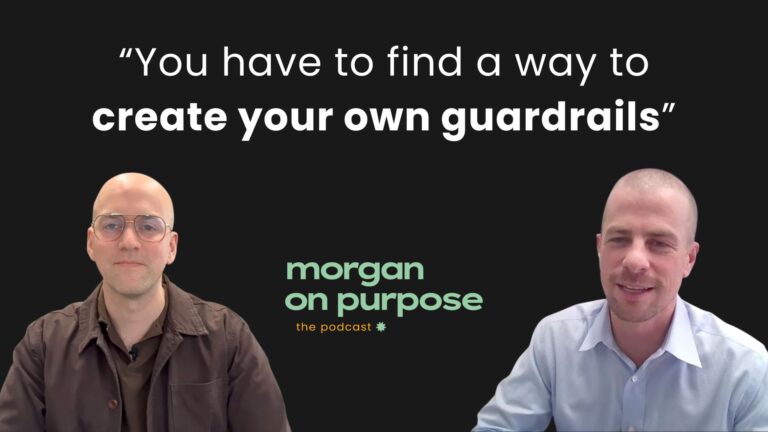It’s a strange feeling when you realize two things you’re passionate about—entirely different parts of your life that you’ve always kept separate—are eerily similar under the surface. That happened to me this month with music and financial planning.
First, let me say that music and financial planning are both important to me. I built a career as a financial planner because I like helping people, and because the shallower sides of finance left me feeling unfulfilled. Helping people get a handle on money—a major cause of stress—gave me purpose.
It was during those periods of frustrations that I realized music is also instrumental (some pun intended) to living a life of purpose. My purpose is to help people, but it’s also to create, and tap into some of the intangibles that make life and the universe so enjoyable.
But I never really thought of the two things as all that compatible. In fact, when I decided to launch this website, I was packaging it as a central place for the different facets of my life. But they were just that, facets.
It was only when someone asked me to talk about my favorite musician (Van Morrison) that I realized music—in particular, jazz—and financial planning are built the same.
Jazz theory
To understand jazz theory, you have to understand a bit about music theory. Music theory is, in essence, translating music into words and notes. It’s the system of cords, speeds, tones, and sounds that spans across instruments and types of music.
Where jazz theory gets interesting (some might say complicated) is that there’s a serious dash of interpretation added to the mix. Jazz is about style. It’s about improvisation. Sometimes there’s sheet music, but sometimes it’s just a handful of chords or notes that you keep returning to.
It turns out, that approach to music is a big part of what makes me love Van Morrison. He was notorious for the exacting standards he put on his band. But his rigor had a purpose—on recording day, he trusted his band to have fun with it.
When you listen to my favorite album, Astral Weeks, you hear this play out quite literally. The album includes risk, experimentation, and guttural sounds that we don’t hear on albums today. It’s an unfiltered form of music that captures at least some of the rawness we experience in daily life.
I’ve heard the album performed live, and it’s always phenomenal. But it never sounds the same as it did that day in the studio. But to me, that’s how it should be.
Financial planning
Financial planning is, at its core, a handful of basic principles. Your income should exceed your spending. Save money. Invest early and stay invested. Allow your returns to compound. Minimize what you pay in taxes so you can keep more of your money. Get strategic about how you tap into your savings.
These concepts are, in many ways, the sheet music to a song. But life isn’t Beethoven; life is a lot like jazz.
Whether your financial plan is sheet music or simply a series of chords and notes you try to adhere to, there’s going to be a significant degree of improvisation and interpretation. That’s just how life plays out. There’s a roughly zero percent chance that you’ll play your plan from start to finish on the same instrument with no interruption and no hiccups.
But if you know all of that ahead of time, you can lean into the hiccups. You can make the most of the improvisation. You create a song—a life—with lasting meaning. With purpose.
Financial planner as producer
I told you a strange thing happens when you make the connection between two disparate parts of your life: Once it happens, the connections keep happening.
Right now, I’m recording an album with my band, Stone Arch Rivals. And I was thinking about the way you put an album together—what goes into bringing that sheet music to life. Sure, you could record an album in a basement and get a decent album. Plenty of talented singers have gotten their big break based on less.
But when you add a producer to the mix, the world expands. They can help you connect with other musicians, with backup vocals, with sound mixers. They can offer resources that you wouldn’t have if you did it all on your own.
A good financial planner acts as a producer. They’ll make sure that you, as the musician, are equipped to handle the sheet music. They won’t give you something beyond your skill level.
They’ll also get you the support you need—instead of backup vocals, it might be a tax accountant or an estate planning attorney. But in general, producers handle the resources you don’t know about, don’t have a connection to, or don’t want to handle on your own.
Combining passions
I promise I won’t beat this analogy to death. However, once you see this kind of symmetry across topics, it’s hard to unsee it. And it gave me food for thought around how many other things in life follow this pattern.
Are there things in your life that need structure but gain immeasurable value from an ability to improvise? Let me know in the comments!



